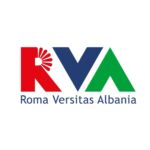
RomaVersitas Program
Objective:
The main objective of RomaVersitas Program was to increase the retention and academic performances and graduation rate, while building the advocacy, self-esteem and identity of Roma full-time students enrolled in tertiary education in Albania.
Achievements during the implementation:
39 Master’s degree students and 107 Bachelor’s degree students (71 females and 36 boys) were formally supported by Roma Versitas Albania between 2014 and 2016 as part of the RomaVersitas Programme. These students received academic guidance and mentorship from the RomaVersitas Programme, including:
- 9 Student Initiative Projects, helping students improve their research and presentation skills;
- 85 students participated in the workshop and soft skills training to enhance their time management, communication and debating skills, CV writing abilities, and capacity to combat anti-Roma discrimination;
- 53 students took the course on Roma history and language.
From 2016 to 2018, the RomaVersitas Programme formally assisted 112 Master’s and Bachelor’s students through mentoring, tutoring, foreign language classes, Rroma identity, IT skills, academic writing, etc.
From this group of programme beneficiaries:
- 34 students received certificates in English;
- 29 students received certificates in Roma history and language;
- 22 students received certificates in computer skills;
- 20 students received certificates in academic writing.
- 80% of students raised their GPA.
- 50 secondary students enrolled in bachelor’s degree programmes;
- 8 students in master’s programmes.
Drop-out

Nearly half of the population of Albanian Roma in 2019–2020, based on the most current census data at the time, examined by the UNDP, never attended school. 96% of Albanian children who did attend school quit by the time they were sixteen, compared to 68% of boys.
These figures reflect the pervasive issues that impede Roma people from participating fully in society. They also draw attention to the limited practical assistance offered by the Roma community to the few young people who do complete their education. These young people are likely to have few, if any, positive role models, minimal familial support, and little knowledge of potential institutional support.
By providing access to a variety of academic and social assistance possibilities for Roma university and secondary students, the RomaVersitas Programme (RVP19) 2018–2019 aimed to alleviate these disparities. In-depth tutoring and mentoring programmes, access to a library with computers set aside for the children to use, and specialised English, computer, and mathematics sessions were among these. Students might participate in Zoom sessions on a variety of subjects, including job and emotional intelligence. Additionally, university students had the opportunity to apply for special SIP funds to pursue their academic interests. Five students participated in professional internships.
The outcomes were impressive: 90% of programme participants saw an increase in their GPA; 94% of tutoring participants passed the related exams; 20% of university students finished their bachelor’s degree requirements and moved on to master’s programmes. All of the students maintained strong attendance rates in their classes during the Covid pandemic, which led to an exceptional overall retention rate. The findings demonstrated that, with the right academic, social, and professional support, Roma youngsters may overcome the obstacles that stand in their way of completing their education and redressing the imbalances that now exist in society.


